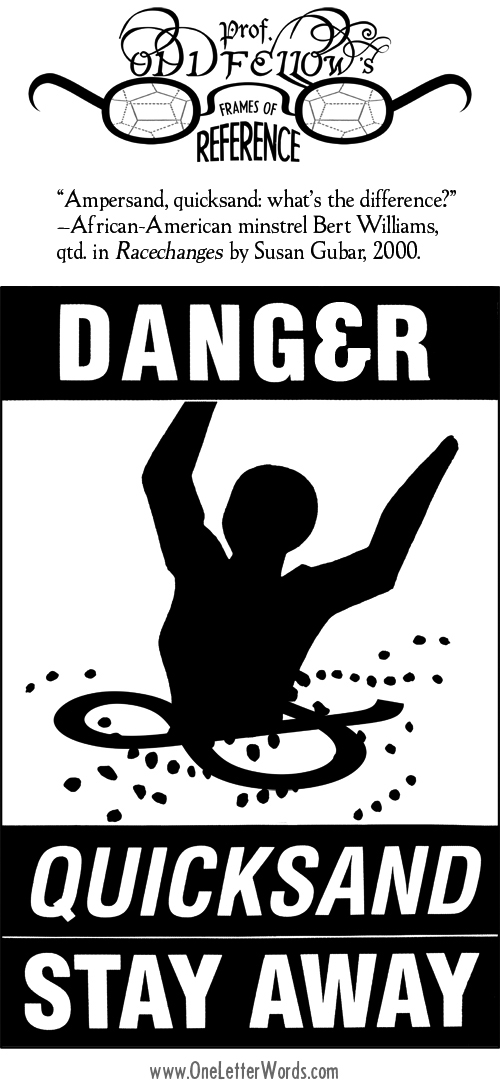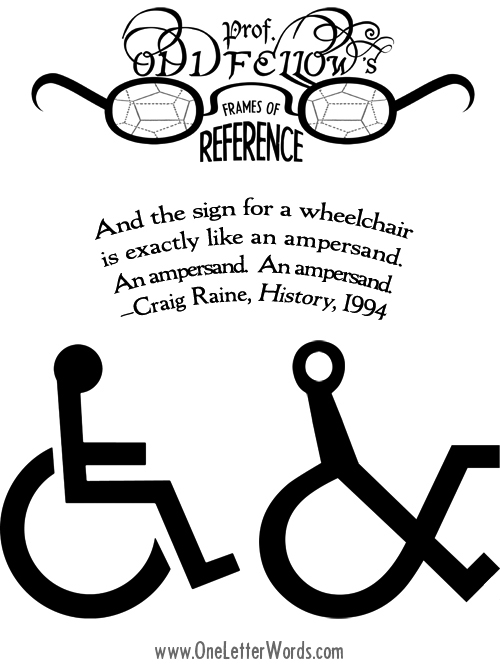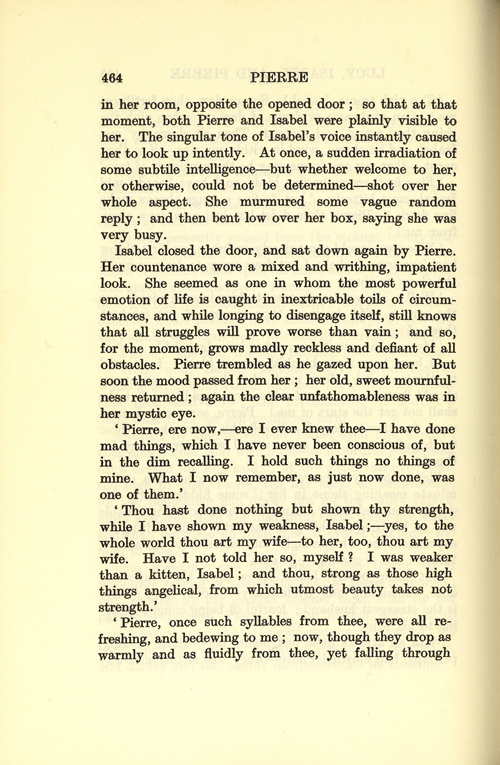the world is made of language
“I don’t believe that the world is made of quarks or electromagnetic waves, or stars, or planets, or any of these things. I believe the world is made of language.”
—Terence McKenna, quoted in ‘Terence McKenna’, Wild Ducks Flying Backward; the short writings of Tom Robbins, 2005.
Prof. Oddfellow’s Frames of Reference: quicksand

dark poison-bottle green
“The water washed round the piles at the end of the pier, dark
poison-bottle green, mottled with seaweed, and the salt wind smarted on
his lips.”
—Graham Greene, Brighton Rock, 1938.
the heavy indigo clouds
“Behind the woman’s head the Brighton lamps beaded out towards
Worthing. The last sunset light slid lower in the sky and the heavy
indigo clouds came down over the Grand, the Metropole, the
Cosmopolitan, over the towers and domes.”
—Graham Greene, Brighton Rock, 1938.
Prof. Oddfellow’s Frames of Reference: An ampersand

a grey tone, or brown
“To begin with, she had always seen herself in her own interior mirror,
as a child woman, too small. And then this little bag of poison she
carried within, the poison of melancholdy and dissatisfaction she
always felt must be apparent in her coloring, must produce a grey tone,
or brown (the colors she wore in preference to others, the sackcloth
robes of punishement.)”
—Anais Nin, Winter of Artifice, 1948.
brown as the color of philosophy
“When she entered his house which was all in brown, brown wood on the
walls, brown rugs, brown furniture, she though of Spengler writing
about brown as the color of philosophy.”
—Anais Nin, Winter of Artifice, 1948.
Renate’s eyes
“Renate’s eyes were sea green and tumultuous like a reduction of the
sea itself. When they seemed about to overflow with emotion, her
laughter would flutter like windchimes and form a crystal bowl to
contain the turquoise waters as if in an aquarium, and then her eyes
became scenes of Venice, canals of reflections, and gold specks swam in
them like gondolas.”
—Anais Nin, Collages, 1964.
the state of painting today
“‘There was a painter who was asked to send his best painting to an
exhibition and he accepted on condition that it would be curtained off
until the day of the opening. This condition was accepted. The crowd
came, quite a large one. His painting was the only one hidden behind a
curtain in a box, and the last to be exposed. When the curtain was
finally parted, the painting was a large square canvas, pure blank.
Blank! The public was outraged. There were insults: “Surrealist!
Dadaist! Beatnik! Mutant!” Then the painter came forward and explained
that he had painted a self-portait and that his dog had found it such
an exact likeness that he had licked it all off. But there had been a
portrait, and this was merely the proof of the faithfulness of the
likeness. And so . . . for those who are interested in progress, twenty
years ago painting was judged by critics, and today it is judged by a
dog. This is the state of painting today.’”
—Anais Nin, Collages, 1964. (This is for you, Lindsay!)
A River Runs Through It: Pierre: or, The Ambiguities
